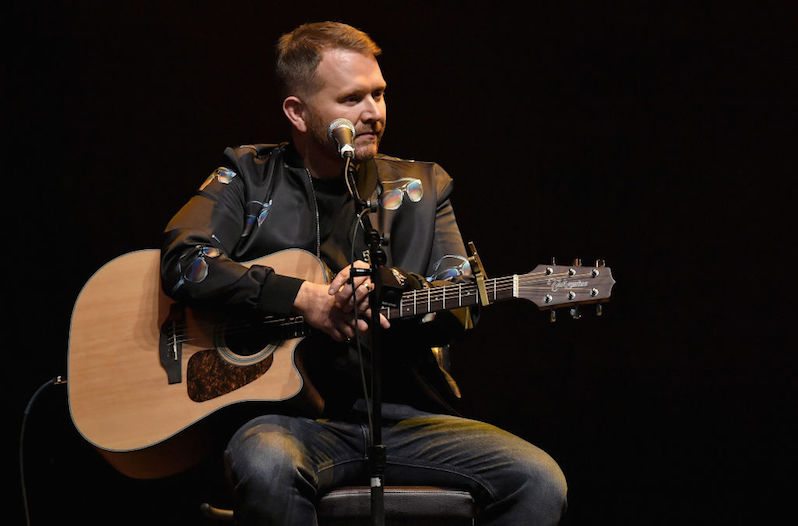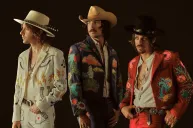A prominent music business conference in Nashville brought queer songwriting to the forefront this week. During the Music Biz 2018 conference, hit songwriters Shane McAnally and Justin Tranter spoke alongside artists Shelly Fairchild and Shea Diamond about representing LGBT voices in country music and beyond.
Videos by Wide Open Country
McAnally is one of Music Row's most celebrated songwriters with more than 20 No. 1 singles to his name. Tranter enjoys similar success in the pop and rock world, working with artists from Brittany Spears to Imagine Dragons. Both are openly gay and formerly artists.
Fairchild, meanwhile, is one of Nashville's most talented vocalists and an artist whose sexual preference cost her a major label deal in the 2000s. Diamond is a trans woman of color whose career as an activist has also inspired her career as an artist.
Reclaiming 'Queer' To Saving Lives
The 90-minute panel addressed a slew of topics, ranging from using the word "queer" to country music's (slow) growing acceptance. "The community has reclaimed the word queer," Tranter told the audience. "Because it can mean everyone within the community. And it's a little bit cooler than saying 'gay' — but it feels very inclusive."
But as such, queer representation in country music is only just now gaining greater acceptance. Something the panel agreed stems from songs like Kacey Musgraves' "Follow Your Arrow," which McAnally co-wrote and which won the CMA Award for Song of the Year in 2014.
Songs like "Follow Your Arrow" seemingly paved the way for artists like Luke Bryan — who traditionally brings a much different audience with him — to sing lines like "I believe you love who you love / ain't nothing you should ever be ashamed of" in his new single "Most People Are Good."
"I believe you love who you love
Ain't nothing you should ever be ashamed of"
Thanks for this @LukeBryanOnline
— Brothers Osborne (@brothersosborne) March 29, 2018
"I don't think Luke would be singing that lyric if it weren't for 'Follow Your Arrow,'" McAnally says. Speaking on how acceptance and chance culminates from culture, Trantor agreed. "Even if 'Follow Your Arrow' didn't change a law, it led to a heteronormative artist singing about it," Tranter says. "And it saves kids lives."
The panel also agreed that the power of queer storytelling isn't necessarily to point out differences, but to celebrate how unifying music can be. Artists sing lyrics that resonate with people regardless of sexuality. McAnally and Fairchild pointed out that one of the most popular country wedding songs of all time, "It's Your Love" by Tim McGraw and Faith Hill, was written by a lesbian writing about her love for another woman.
A Transformative Moment
One of the more transformative moments of the panel took place when Fairchild jokingly pleaded with McAnally to keep writing songs because his success might inspire more country artists to be themselves and gain acceptance. Though there are a litany of talented LGTB writers and artists in country music, for many younger kids or closeted artists, McAnally might appear like the only representation of the queer community in country music.
"I don't think I've necessarily taken that baton wholeheartedly," McAnally says. "Because I had success and maybe feared that would change. But I'm a different person now, and in this moment, I'm able to hear it."
Trantor also appealed to the business minds in the audience by pointing out that young listeners want to hear diversity in their music. "Diversity is good for business," Tranter says.
Diamond added that now more than ever it's important for people with a voice to share their stories. "If we don't tell the stories, history will say it never happened," she says.
For people outside the LGBT community who want to be better allies, Tranter says the goal is simple: "Just support and listen to them."




